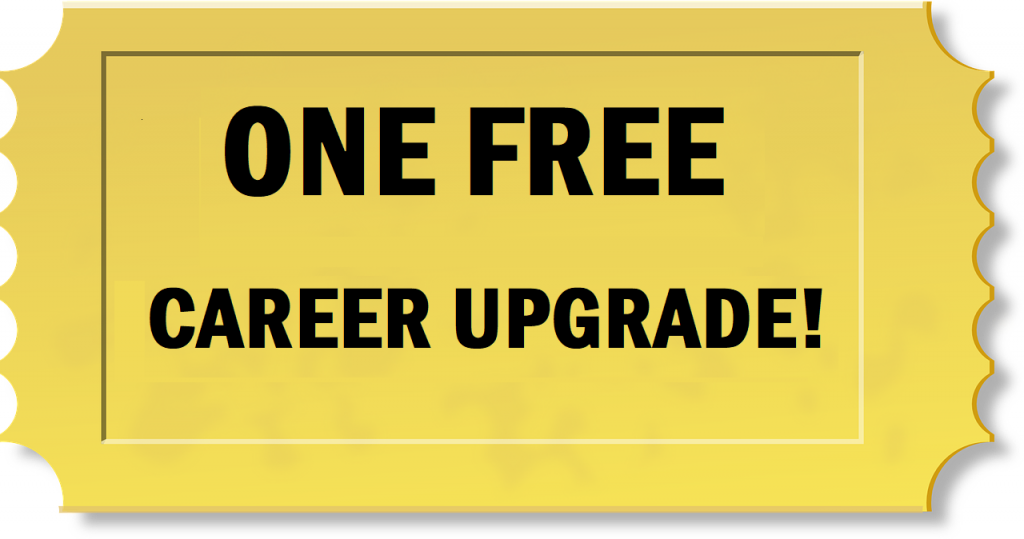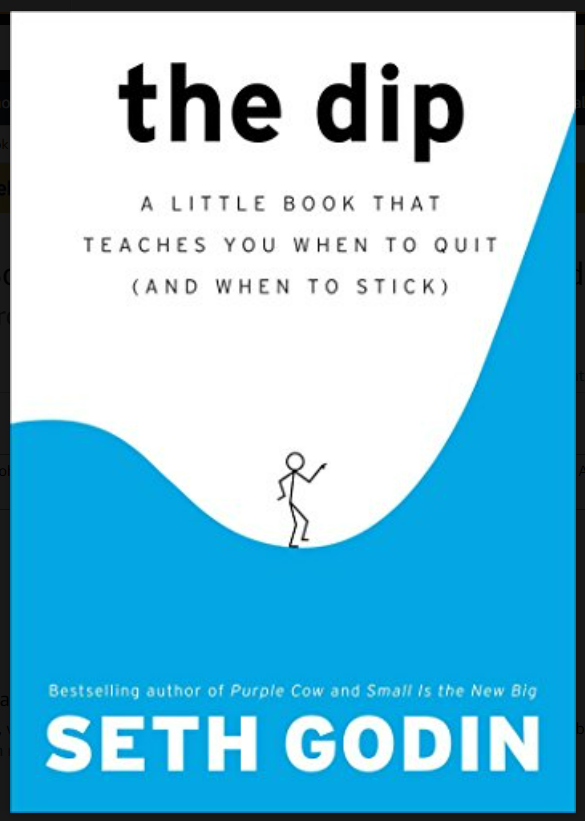We’d all like to be more decisive in our lives. While some of us are blessed with the certainty gene, most of us are pretty wishy washy when it comes to making decisions. We think about it. We debate. We hem and we haw. We say we’ll think about it. Then we think about it some more.

Whether we end up making a decision or not tends to be a crap shoot. If there’s someone else pestering us to make a decision, our choice often comes down to their persistence. If they are determined to get an answer from us, then it’s quite often a yes. If that person doesn’t follow up with us (or we’re successful in avoiding them for long enough), then it’s a no by default, since we’re never forced to really make a decision.
If it’s a decision that we need to make of our own volition, then most of the time it’s another no by default, since there’s no one there (other than our own conscious) forcing us to make a choice. It seems that most of us are quite adept at putting off and ignoring important decisions. We reason that if we don’t pay attention to the choice long enough, it will either go away, the opportunity will pass by, or something else will happen that resolves the situation without us having to make a decision.
We all too often end up outsourcing our decision-making to fate.
Which is not a great idea, especially when it comes to the future of our business.
We should be the ones in charge of our decisions.
But it all comes back to the decision-making process. How do we decide on which way to go? When do we say yes and how do we know when to say no?
It’s difficult for most of us to make choices in our lives. Throw in the possibility that this same decision could have long-term consequences for our business, and we’ve got a recipe for disaster.
Indecision gone wild.
What we need is some guidance. Something to help us assess our choices and make a judgement.
We need a cheat-sheet for making decisions.
The best thing we can do, for ourselves, our sanity, and the future of our business, is to come up with some sort of guidelines for us to follow when making decisions. If we figure out how we’re going to address most situations before we’re faced with them, making these choices becomes a lot less stressful.
Early in our careers, our answer should be yes to just about everything. Getting a fledgling business off the ground is a difficult task. We should be receptive to almost any opportunity that will make us money or provide us with an avenue to promote our business. Those first few years can be brutal on a small business, and any money or advertising, no matter how trivial it may seem at the time, could prove to be the difference between fighting to live another day and shuttering the doors forever.
When I was first staring out in the inspection business, I thought I should concentrate on only doing inspections for home buyers. In the beginning, I turned down any other opportunities that came my way. If it wasn’t a full-priced home inspection, I wasn’t interested.
Thankfully, it didn’t take long for me to realize that the narrow-minded view I had regarding my job was going to lead me to the poor house. As a new inspector, I was having trouble getting established real estate agents to recommend me to their home buying clients.
All those high-paying home inspection jobs weren’t falling in my lap like I thought they would. I had to do something to keep the door open, and I had to do it fast. I decided that I would start saying yes to any other opportunity that presented itself. From bank draw inspections to calls to investigate problems for current homeowners, I took anything and everything that came across my radar. These smaller jobs didn’t pay nearly as much as real home inspections, but they helped to keep the money flowing (and the business open) until I was able to make a name for myself in the industry.
It’s a fact that most small businesses fail within their first two years due to a lack of revenue. Knowing that the odds are stacked against us, we need to remember that any money we make (from any source) is vital to our fledgling business. Any infusion of capital into our bank account can help us cross the threshold of “unknown start-up” and move us closer to our goal of becoming a well-known commodity.
We never know when that golden ticket is going to land in our laps, providing us with a great business opportunity that morphs into something bigger and better.

One of my earliest calls was from a gentleman who was having a problem with a roof leak in one of his rental units. He said that he was having a hard time finding a roofer that would troubleshoot problems, as they were all just trying to sell him a new roof. He offered to pay me $75 to visit his tenant’s apartment and figure out what was going on. As it had been a really slow month, and I was starting to get worried about cash flow, I agreed to take the job.
The tenant turned out to be a nice elderly lady and finding the roof leak (coming from a worn-out plumbing vent flashing) was a pretty straightforward job. I easily identified the problem, which made his tenant happy as it was quickly repaired. The landlord sent me a check with a nice note of thanks, and I soon forgot about the job.
About a month later the same landlord called again, this time with a plumbing leak for a tenant in one of his rental houses. We made similar arrangements for compensation, and I easily located a cracked water pipe under the raised home.
This time the gentleman met me at the property to deliver my check in person. We spoke for a while, and it turned out that his son and I had attended to same high school. As we spoke, he told me about his fledgling business investing in local properties and stated that he was actively looking for other homes to buy. I told him that I didn’t know much about available real estate but would be glad to inspect any homes that he did identify as possible investment opportunities.
Since those early days of troubleshooting, I’ve inspected more properties for him than I can count. He’s become a good friend and is responsible for introducing me to my favorite real estate agent, who, directly and indirectly, is responsible for about 35% of all my home inspection business.

It’s vitally important to say yes to any and every legitimate business opportunity when we’re trying to grow our fledgling businesses. We never know when one of those small jobs will provide the spark that turns our little business venture into a career.
Equally important is saying yes to every marketing opportunity, no matter how crazy or off-the-wall it sounds. In the early stages of our business, we need to get in front of as many people as possible, spreading the word about our business far and wide. As long as it provides us a chance to interact with potential future clients, it should be an automatic yes whenever we’re asked to sponsor or attend an event.
Real estate agents, especially inexperienced ones, often come up with some crazy ideas to market their business, with many of them destined to fail in spectacular fashion. I’ve spent more days than I care to remember in an empty room, eating from an untouched buffet, and talking about the new home buyers that never showed up for their free seminar.
But even though no buyers ever showed, sponsoring those events gave me the opportunity to spend a few hours talking with and getting to know the new agents that hosted them. Even though it was a certainty that most of them would never make it in the real estate industry, occasionally I would strike gold and that new agent would go on to become a top producer (who would forever be thankful to the thoughtful home inspector that was nice enough to sponsor their early attempts at marketing.) Many of the agents that I met while sitting through those failed marketing attempts (also called learning opportunities) are still an active part of my business and instrumental in my success.
Just as it’s important to say yes to every opportunity when we’re starting out, it’s equally important to know when to say no, once we’re running an established and successful business. The number of opportunities that present themselves seem to grow exponentially in response to our reputation. The more well-known we are in our industry, the more people will seek us out with proposals, propositions, and opportunities. Once we become a “well-known commodity,” it seems like everyone and their grandmother has a sure-fire, can’t miss plan they can’t wait to share.
Everything changes the day we figure out there is exactly enough time for the important things in our lives.
(paraphrased from) Brian Andreas
It would be great if we were able to take advantage of every business venture and marketing opportunity that comes our way. Unfortunately, the reality of running a successful business is that our time is limited, and therefore very valuable. It’s imperative that we recognize those restrictions and act accordingly, focusing our energy on those things that prove to be most beneficial to us and our business.
We should be intimately familiar with the value of our time, down to how much we’re worth in terms of an hourly wage. If we’re doing two $500 inspections each day, spending about 4 hours on each inspection (factoring in pre and post inspection work), then our time is worth about $125 an hour. We can then use this hourly wage as the basis by which to judge all other opportunities.
If something is going to provide us with the chance to exceed our hourly rate (whether immediately or in the future), then it’s likely a good move to take advantage of that opportunity when it presents itself. If doing something means taking a pay cut, we’d be much better off (from a purely financial standpoint) simply spending our time doing home inspections.
When we’re first staring out in business, it makes sense to agree to do that limited inspection for a few dollars. We’ve got to make enough money to survive until our next job opportunity. Once we’re an established inspection company, taking that job simply means that we’ve got to say no to a better paying job.
There’s only so much time in our day available for work, and we’ve got to utilize that time wisely if we’re to run a successful business. Yes, it’s nice to know that we’re “in demand,” but the reality is that we’re in business to make money and provide for our family. If we spend too much of our valuable time doing things that don’t maximize our earning potential, we won’t be in business for too long.

When we’re first staring out, we should be following the mantra of saying yes to everything. Once we start having success in our business, it’s in our best interest to adjust our mantra in response to our increased responsibilities. We’ve got to realign our expectations in order to keep our business growing (and ourselves mentally stable).
There’s only so may hours in a day. If we keep saying yes to the things that are important to everyone else, there will be no time left to say yes to the things that are important to us, like our business, our family, and our sanity.
That’s why, once we’ve achieved success in our business, it’s important to adopt a new mantra that fits our new way of thinking and our new busy schedule.
Author Derek Sivers offers such a mantra in his book “Anything You Want”:
When deciding whether to do something, if you feel anything less than “Wow! That would be amazing! Absolutely! Hell yeah!” — then say “no.”
When you say no to most things, you leave room in your life to really throw yourself completely into that rare thing that makes you say “HELL YEAH!”
Whether it’s a job opportunity that’s simply not as good as doing an actual home inspection, a marketing opportunity that’s not putting you in front of a large number of potential clients who are ready to buy, or a networking event with people who will likely never utilize your services, if it’s not a HELL YEAH, then it’s a no.
We’ve got to remember that whenever we say yes to something, we’re saying no to something else. Unless the thing we’re saying yes to gets us closer to where we need to be, whether in life or in business, then we’ve likely made the wrong decision.
Most of us have trouble saying no to people. It’s likely that we were raised to be helpful and agreeable. It’s not in our nature to be confrontational. But we’ve got to remember that exercising control over our own schedule and our own lives in not confrontational, it’s simply good practice. When we spend our time doing things that we want to do we feel happy and productive. When we spend time brooding over something we’re not really committed to, we feel bad and are unlikely to give our full effort to whatever it is we agreed to in the first place.
It’s always better for everyone involved if we simply say no from the beginning. We can easily tell someone no without being dismissive or confrontational. When asked to do something that’s not a HELL YEAH, simply thank the person for thinking about us but explain that we’re already incredibly overbooked and would not be able to give their request the attention it deserves. We should wish them well in their endeavor and move on with our life. If they’re a good friend, they’ll understand. If they don’t understand and give us a hard time as a result, then they weren’t a good friend to begin with.

It’s important to understand where we are in our business journey. When we’re growing, we need to take advantage of every opportunity we’re provided, trying to parlay every new situation into an occasion for business growth. But once we’ve achieved some level of success, we’ve got to focus our energy on those things that really thrill us, saving our time and energy for those opportunities that really make us excited.
It’s our time. If we don’t make ourselves a priority, no one else is going to do it for us.
The difference between successful people and really successful people is that really successful people say no to almost everything.
Warren Buffett
Would you like to get an email every Friday where we share the newest things we’ve discovered about home inspections? CLICK HERE to sign up.
Want to be an Influencer in Your Field? Share This Post!
Thanks, Joe

